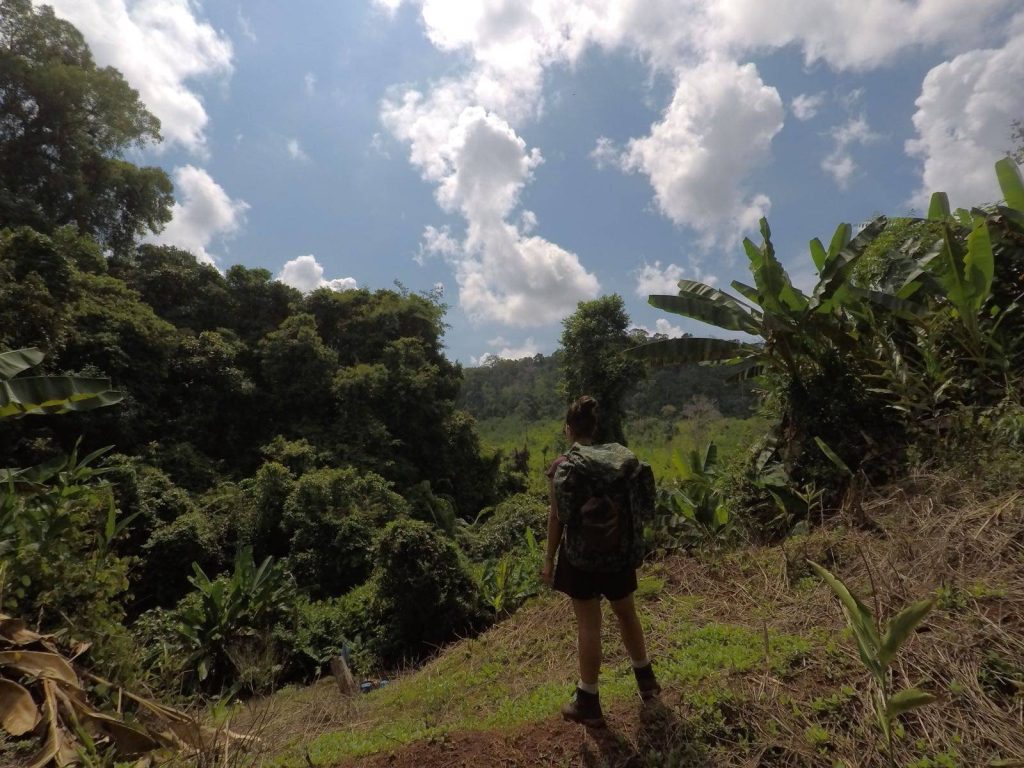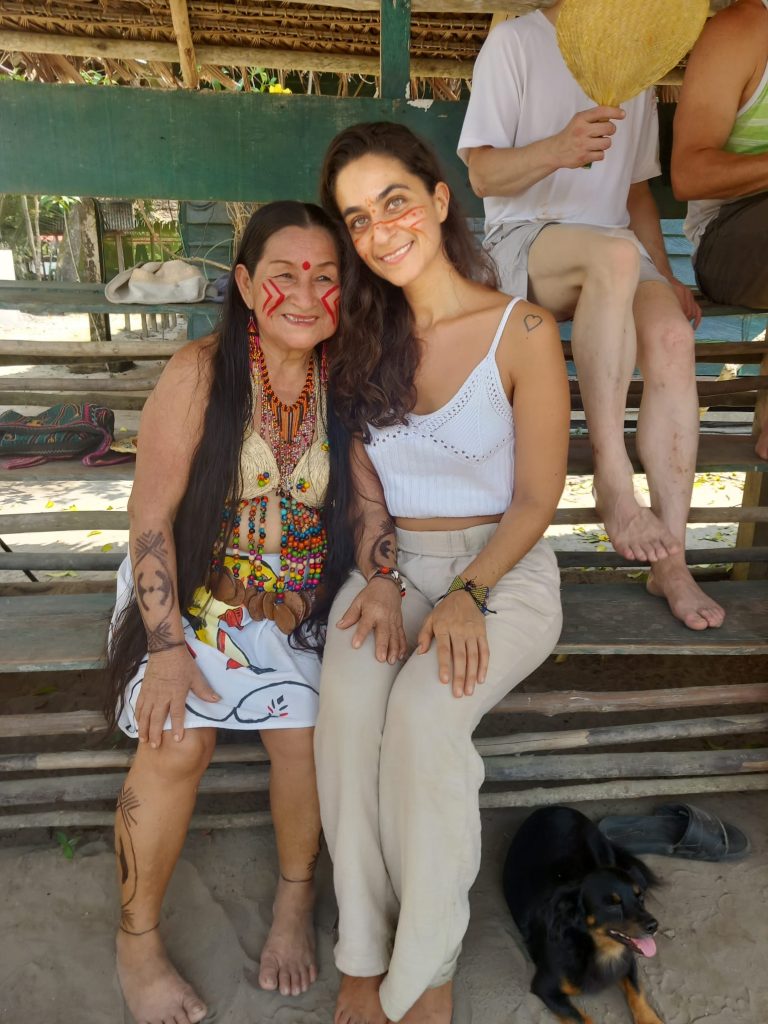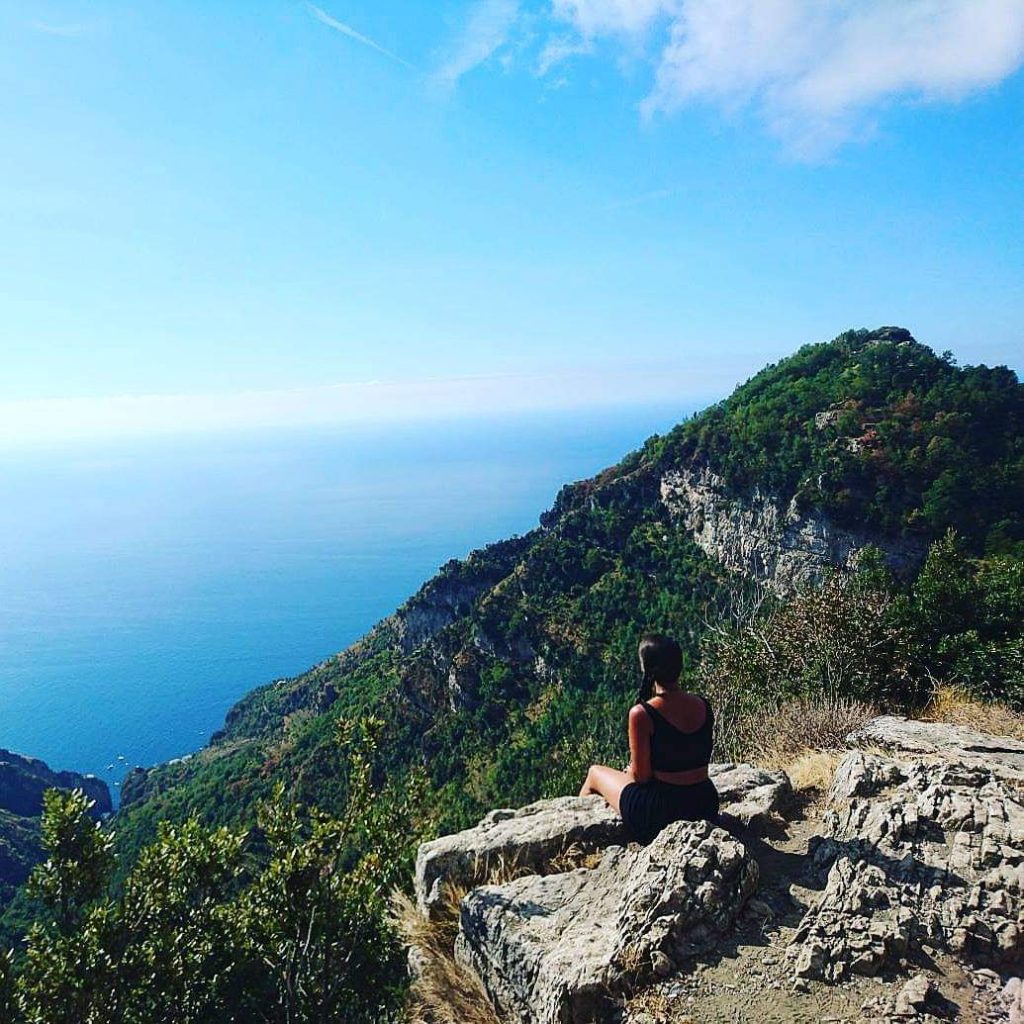The Ancient Future

What is the Ancient Future?
The Ancient Future is a concept that acknowledges the interconnectedness of ancient wisdom and modern life. It encourages exploration of various spiritual traditions, emphasising the importance of understanding our roots to navigate contemporary challenges. The knowledge of our ancestors teaches us to focus on themes such as community, spirituality, and personal empowerment. This guidance helps us pursue a more harmonious existence while opening new paths for future generations. By integrating these ancient teachings, we advocate for a holistic approach to personal growth and societal healing, inviting us to reclaim our heritage and embrace a future informed by the wisdom of the past. The Ancient Future is not linear; rather, it represents a cyclical return to our roots. It harmonises intuition, knowledge, and compassion, allowing us to reclaim silenced narratives and acknowledge the feminine energy that has often been neglected in our fragmented modernity.
The Current State of the World
Today, we face a world marked by division and disempowerment. The need for women to rise and reclaim their voices has never been more urgent. The challenges we encounter such as social inequality, economic disparity, and cultural upheaval – demand the unique perspectives and strengths that women offer. Consequently, this movement is not just about individual empowerment; it represents a profound opportunity to heal our collective wounds.
My work is a powerful example of this reclamation as I focus on the wisdom of the menstrual cycle, providing a space for women and those who menstruate to explore their experiences and connect with their bodies. Through classes, courses and programmes, participants learn to embrace menstruality, share their stories, and challenge the societal taboos that often surround their bleed. This movement empowers women to reclaim their identities and assert their voices in conversations about health and femininity. By recognising and celebrating the unique insights that come from these experiences, I hope to highlight the essential role women play in shaping a more equitable society.
Amongst systemic injustices and fragmented communities, women’s voices provide unity and resilience. Historically, women have been bearers of wisdom, intuition, and empathy. By stepping into our power, we can challenge the status quo and envision a world rooted in collaboration and compassion. Through breaking cycles of disempowerment and trauma, we can create a future that merges the wisdom of the past with the possibilities of what is yet to come.
Lessons from the Past: Shaping a Sustainable Future
Uncovering the true history of the past is essential for understanding the future, as it enables us to recognise patterns, learn from mistakes, and appreciate the richness of human experience.
- Learning from Mistakes: By examining historical events and the failures of societies, we can avoid repeating the same errors. This awareness can guide decision-making in politics, social justice, and environmental stewardship.
- Cultural Wisdom: Many ancient cultures offer valuable insights into sustainability, community, and human connection. By re-evaluating these traditions, we can gain perspectives that inform contemporary issues like climate change and social inequality.
- Decolonising History: It is crucial to acknowledge and address biases in historical narratives. Recognising the contributions and perspectives of marginalised groups can lead to a more comprehensive understanding of our past.
- Interconnectedness: History reveals the interconnectedness of human societies. Understanding these connections creates empathy and cooperation, which are vital for addressing global challenges such as migration, conflict, and environmental crises.
- Innovation through Tradition: Blending ancient practices with modern technology can inspire innovative solutions. For instance, traditional agricultural methods can inform sustainable practices in contemporary farming.
- Reflecting on Values: Examining the values that shaped past societies encourages us to reconsider our priorities and ethics, guiding us towards a more just and equitable future.
Kaitiakitanga
One powerful example comes from Indigenous communities around the world, such as the Māori in New Zealand. They often integrate ancient wisdom into modern practices, with the concept of kaitiakitanga – meaning guardianship and protection; a way of managing the environment. In the Māori world view, people are closely connected to the land and nature, and kaitiakitanga is based on this idea of humans as part of the natural world. This principle emphasises respect for nature and sustainability, teaching valuable lessons about interconnectedness and ecological balance that can be applied globally.
By engaging with such traditions, we not only gain insights into our past but also equip ourselves to build a future that honours our collective experiences and wisdom. These lessons highlight the importance of community, respect for the environment, and the need to integrate ancient knowledge into modern practices to address today’s challenges. By actively engaging with history, we gain insights into our past and equip ourselves to build a future that honours our collective experiences and wisdom.

The Values of the Ancient Future
1. Unity and Oneness
- Connection with All Life: The Ancient Future emphasises the interconnectedness of all beings – human, animal, plant, and the Earth itself. There’s a deep awareness that every part of the world is interrelated, and actions should reflect respect and care for the whole system.
- Spiritual Unity: A shift from seeing ourselves as separate from one another to recognising a shared, spiritual essence that binds all of humanity together. This often ties in with an expanded sense of empathy, compassion, and collective responsibility.
2. Love and Compassion
- Universal Love: Love is seen not only as a personal emotion but as a fundamental energy that can heal and elevate society. The values of kindness, compassion, and selflessness are central to creating a more loving, peaceful world.
- Compassionate Action: A new worldview emphasises that love must be expressed in actionable ways, such as supporting one another, helping those in need, and addressing social, environmental, and economic inequalities.
3. Presence and Mindfulness
- Living in the Moment: Inspired by teachings such as those in Eckhart Tolle’s A New Earth, there’s an emphasis on being fully present in each moment. This principle encourages letting go of past regrets and future anxieties, focusing instead on the present to experience peace and clarity.
- Awareness: The Ancient Future encourages individuals to cultivate mindfulness in all aspects of life, which creates a greater self-awareness and an understanding of the interconnectedness of all things.
4. Sustainability and Environmental Stewardship
- Reverence for Nature: A deep respect for the environment and an understanding that humans must live in harmony with nature rather than exploiting it. This involves adopting sustainable practices in agriculture, energy, and resource management.
- Ecological Consciousness: Moving away from consumption-driven societies, people of the Ancient Future prioritise the health of the planet, seeking ways to reduce waste, conserve biodiversity, and restore ecosystems.
5. Cooperation and Harmony
- Community over Competition: The Ancient Future stresses cooperation and collaboration rather than competition. This involves developing a sense of global community, where people work together for the greater good, transcending borders and divisions.
- Collective Well-being: Prioritising the well-being of all individuals and communities over individual gain, and addressing systemic issues like modern day slavery, sex trafficking, poverty, inequality, and injustice.
6. Personal Transformation
- Inner Growth and Awakening: The Ancient Future emphasises the importance of individual spiritual awakening, which contributes to the collective evolution. This involves letting go of ego-based identities, embracing inner peace, and developing higher consciousness.
- Self-Realisation: The awakening of one’s true nature and purpose, aligning personal actions with universal truths. It is seen as essential for creating positive change in the world.
7. Peace and Non-Violence
- Peaceful Living: A world that is free from violence, war, and conflict, where peaceful resolution of differences is prioritised. This principle calls for a deep inner and outer peace, recognising that violence – whether physical, emotional, or psychological – has no place in a harmonious world.
- Non-Violence: Similar to the teachings of Mahatma Gandhi or the Buddhist principles of Ahimsa, this value calls for compassion in thought, speech, and action toward all living beings.
8. Equality and Justice
- Social Justice: There is a profound commitment to creating a world that is free from injustice, oppression, and inequality. The Ancient Future values equity, fairness, and human rights, ensuring that all people, regardless of background, have access to the resources they need to thrive.
- Celebration of Diversity: Embracing the uniqueness of individuals and cultures without discrimination, seeing diversity as a strength rather than a division.
9. Non-materialism and Simplicity
- Simplified Living: The Ancient Future calls for a shift away from consumerism and materialism, encouraging a simpler, more intentional lifestyle that values experiences, relationships, and spiritual growth over material possessions.
- Gratitude and Contentment: Living with gratitude for what we have, recognising the richness of life in non-material ways, and finding fulfilment through connection, creativity, and consciousness.
10. Healing and Renewal
- Healing the Earth and Ourselves: There’s a strong emphasis on healing – both personal and collective. This involves healing the wounds caused by past traumas, historical injustices, environmental degradation, and personal suffering.
- Restoration and Renewal: The process of renewal extends to the physical environment, human relationships, and societal structures, aiming for restoration of balance and harmony in all aspects of life.
Cultivating a Mindset for Change
Embracing change requires a profound shift in mindset, particularly in a world that often feels resistant to progress. Cultivating this mindset involves nurturing openness to new ideas, developing resilience, and committing to both personal and collective growth.
Embrace Adaptability
At the core of cultivating a mindset for change is adaptability. By viewing challenges as opportunities for growth, we can navigate the complexities of our environments with agility.
- Actionable Step: Start viewing challenges as opportunities for growth. Reflect on a recent challenge you faced and identify the lessons learned.
- Resource: Consider reading “Mindset: The New Psychology of Success” by Carol S. Dweck to explore the power of a growth mindset.
Develop Community Connections
Building strong, supportive communities is vital for sustaining change. By actively engaging with others – listening to their stories and sharing our own – we cultivate a sense of belonging and shared purpose.
- Actionable Step: Engage with your local community by joining a group that aligns with your interests, such as a wellness circle, book club, environmental group.
- Resource: Websites like Meetup.com can help you find local groups and events that create connection and shared purpose.
Cultivate a Growth Mindset
A growth mindset – the belief that abilities and intelligence can be developed – is essential for embracing change.
- Actionable Step: Set specific, achievable goals and break them down into manageable tasks. Celebrate your progress, no matter how small.
- Resource: “The 7 Habits of Highly Effective People” by Stephen R. Covey offers strategies for personal and professional growth.
Prioritise Self-Reflection
Self-reflection is a powerful tool for personal growth and societal change. Taking the time to examine our beliefs, biases, and motivations allows us to identify areas for improvement.
- Actionable Step: Dedicate time each week for self-reflection. Journaling can be a powerful tool – write about your beliefs, biases, and motivations to identify areas for improvement.
- Resource: Consider using prompts from books like “The Artist’s Way: A Spiritual Path to Higher Creativity” by Julia Cameron, which encourages creative self-discovery.
Practise Mindfulness
Mindfulness enhances our ability to respond thoughtfully to challenges rather than react impulsively. By grounding ourselves in the present moment, we cultivate clarity and focus.
- Actionable Step: Incorporate mindfulness practices into your daily routine. Start with just five minutes of meditation or deep breathing each day.
- Resource: Apps like Headspace or Calm provide guided meditations and mindfulness exercises to get you started. Or you can enrol onto one of my meditation courses.
Embrace a Vision of Possibility
To cultivate a mindset for change, we must embrace a vision of what is possible. This vision, fuelled by hope and optimism, urges us to envisage a future where equity, compassion, and collaboration prevail.
- Actionable Step: Create a vision board that illustrates your goals and dreams. Visualising your desired future can help keep you motivated and focused.
- Resource: Online platforms like Pinterest offer inspiration for creating vision boards that resonate with your aspirations.
Take Action
Ultimately, a mindset for change requires action. It is not enough to merely envisage a better world; we must actively participate in its creation.
- Actionable Step: Identify one small action you can take today to move towards your goals, whether it’s volunteering, starting a project, or reaching out to a mentor.
- Resource: The book “The Desire Map: A Guide to Creating Goals with Soul Book” by Danielle LaPorte can help you find your motivation and inspire action in your pursuits.
By actively engaging with these practices and resources, you can cultivate a mindset for change that empowers you to navigate challenges with resilience and optimism, ultimately contributing to a more harmonious and equitable future.

Self-Reliance as a Key to the Ancient Future
A fundamental aspect of the Ancient Future is cultivating self-reliance. Learning to become more self-sufficient empowers both us and our communities. This can manifest in various ways, such as creating allotments and shared gardens for growing food. Additionally, raising animals such as chickens or goats can deepen our connection to the land that sustains us. These practices not only develop resilience but also reinforce community bonds as we share resources and knowledge. The Transition Town Movement is a movement that has been growing since 2005. Community-led Transition groups are working for a socially just future with resilient communities, more active participation in society, and caring culture focused on supporting each other.
Reclaiming traditional skills that modern convenience has overshadowed is also key in creating the Ancient Future. Learning carpentry, foraging, and other practical skills enhances our independence while connecting us to ancestral wisdom. This return to hands-on learning allows us to appreciate craftsmanship and sustainability in our everyday lives.
Additionally, our approach to education must shift towards experiential learning. Learning occurs most effectively through doing. Pioneers like Rudolf Steiner championed this philosophy, advocating for education that nurtures play, exploration, creativity, and critical thinking. By allowing children to engage with their natural environment and learn through practical experiences, we create a generation that is both knowledgeable and deeply connected to their roots.
Addressing Counterpoints
While the vision of reclaiming ancient wisdom and integrating it into modern practices is compelling, it is essential to acknowledge some counterpoints and challenges that arise.
Skepticism About Tradition: Critics may argue that relying on ancient wisdom can perpetuate outdated practices that do not align with contemporary values, particularly regarding gender roles or cultural traditions. It is crucial to critically assess which aspects of ancient knowledge are relevant and beneficial today, ensuring that we do not romanticise the past at the expense of progress.
Cultural Appropriation: There is a valid concern regarding cultural appropriation when drawing on Indigenous practices or wisdom from different cultures. This raises the question of who gets to speak for and utilise these traditions. Engaging with these practices respectfully and authentically, with acknowledgment of their origins and ongoing relevance, is essential for a meaningful integration of ancient wisdom into modern life.
Balancing Modernity and Tradition: Some may argue that in our fast-paced, technology-driven society, focusing on ancient practices could hinder innovation and adaptability. Striking a balance between embracing traditional wisdom and leveraging modern advancements is vital for creating sustainable solutions that honour both the past and the future.
By recognising these counterpoints, we can engage in a more nuanced discussion about the role of ancient wisdom in contemporary society. This dialogue allows us to thoughtfully integrate valuable insights while remaining responsive to the complexities of modern life.
A Call to Action
As we stand at the crossroads of tradition and modernity, the journey toward embracing ancient wisdom and integrating it into our lives is both essential and transformative. The principles of womb wisdom, community resilience, and the lessons of the past offer us invaluable tools for navigating the complexities of contemporary life.
Now is the time to take action. Reflect on how you can embody these principles in your daily life:
- Embrace Your Body’s Wisdom: Tune into your menstrual cycle or other natural rhythms. What insights can you gain from this connection? Consider working with me for guidance and support.
- Explore Your Inner Strength: Dive into practices that connect you with the Dark Feminine Archetype. What feelings or strengths have you yet to embrace?
- Engage with Your Community: Seek out local groups that resonate with your values and get involved. Together, we can create networks of support and empowerment.
- Challenge Outdated Norms: Identify areas in your life where you can assert your voice and advocate for yourself and others. How can you challenge the status quo in your community?
- Commit to Continuous Growth: Choose one actionable step from the mindset strategies shared in this article and implement it this week. Whether it’s practising mindfulness or setting a personal goal, every small action counts.
Together, we can honour our roots while bravely envisioning a future that resonates with compassion and understanding. Let us reclaim our shared heritage, heal ourselves, and pave the way for future generations to thrive within a tapestry woven from the wisdom of the past and the possibilities of tomorrow.
Awaken with Soraya
Are you ready to embody the wisdom of your womb and awaken the woman within? If you’re ready to embody a new way of living rooted in feminine power, deeply knowing yourself speaking your truth and being an advocate for a brighter future for all, I invite you to learn how you can work with me.